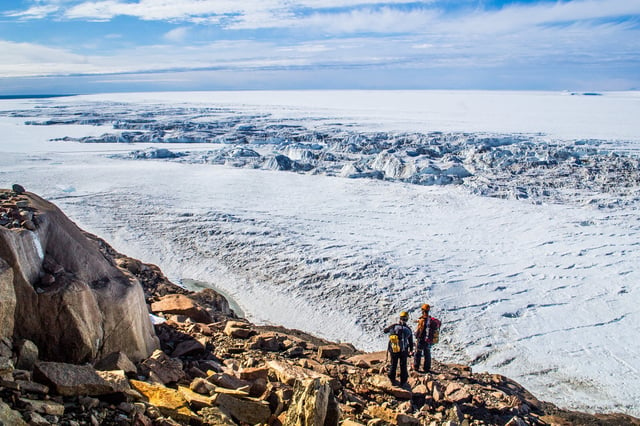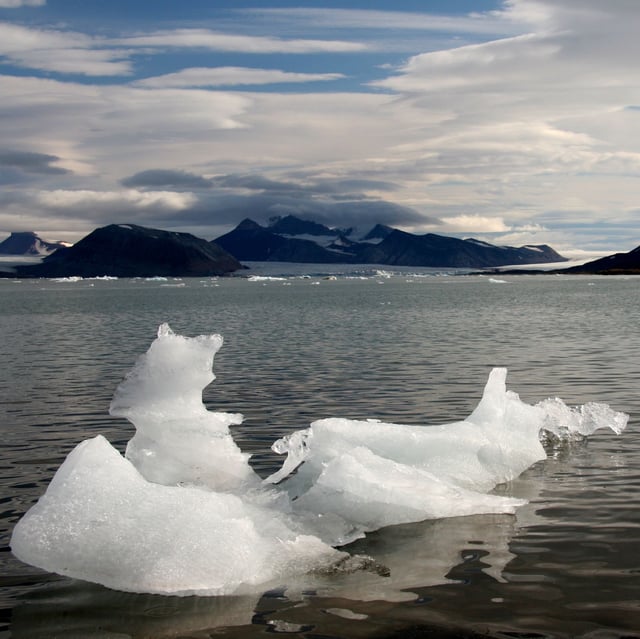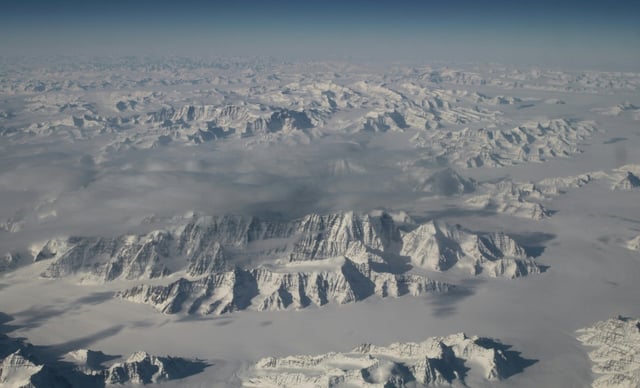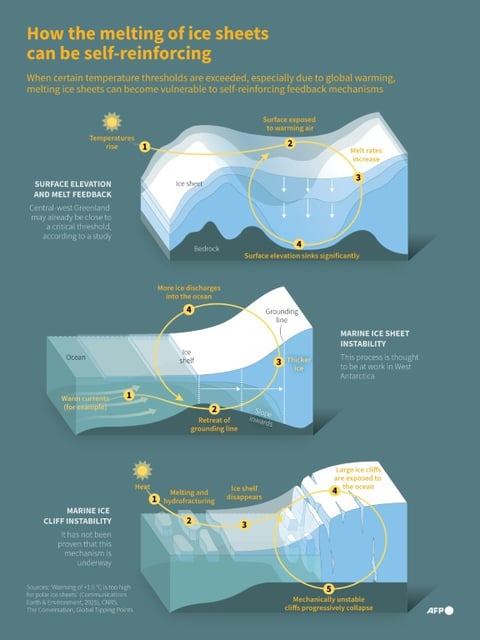Overview
- Global mountain glaciers will not recover for centuries, even if temperatures are brought back to 1.5°C after exceeding 3°C, according to new simulations.
- A 3°C overshoot could lock in up to 16% additional glacier mass loss by 2200 compared to staying below the 1.5°C threshold.
- Evidence now suggests that tipping points for Greenland and West Antarctic ice sheets lie near 1.5°C, significantly lower than previously thought.
- Polar ice sheet loss and glacier meltwater are projected to contribute to sea-level rise accelerating to approximately 1 cm per year by 2100, even under the Paris Agreement target.
- Researchers emphasize that achieving safer temperature limits closer to 1°C is essential to mitigate irreversible cryosphere changes and their cascading global effects.



